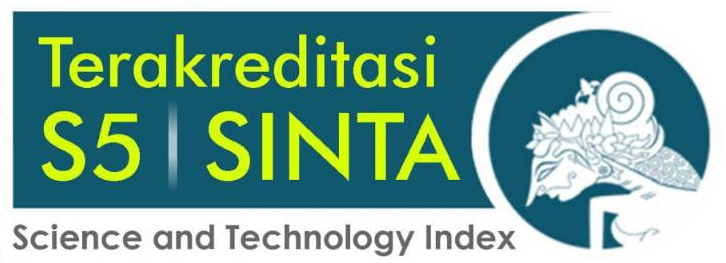Kesadaran Multikultural dan Kewirausahaan Masyarakat Desa (Kasus Desa Wisata Batuan, Bali)
DOI:
https://doi.org/10.51172/jbmb.v1i3.32Keywords:
Tourism Village of Batuan, multicultural education and entrepreneurship.Abstract
Cultural tourism of Bali was supported by the existence of tourist objects or village activities, including the existence of the tourist village of Batuan, Sukawati, Gianyar that was flooded by tourists. This paper discusses the existence of tourist attraction at ‘Pura Batuan’ as multicultural education and growing entrepreneurship of the local people around the tourist object of “Pura Desa Batuan”. The research data was collected through observation, document study and interviews with 8 informants: visitor and top leader of Batuan Village and researcher of Balinese culture. Data analysis was carried out descriptively, qualitatively by applying stakeholder and cultural commodification theory. The results of the study show that the cultural heritage of Pura Desa Batuan had become part of the main tourist attraction in the tourist village of Batuan, Sukawati, Gianyar Regency which attracts tourists. Its existence has become a vehicle for multicultural education, strengthening the cultural traditions of the people and entrepreneurship of the Balinese people in the local village.
References
Verso.
Ardika, I Wayan. 2003. Pariwisata Budaya Berkelanjutan Refleksi dan Harapan di Tengah
Perkembangan Global. Denpasar. PS Kajian Pariwisata, Universitas Udayana.
Ardika, I Wayan.2004. “Pariwisata Bali: Membangun Pariwisata Budaya dan Mengendalikan
Budaya Pariwisata” dalam Bali Menuju Jagadhita, Aneka Persepktif. Denpasar:
Pustaka Bali Post.
Ardika, I Wayan. 2007. Pusaka Budaya dan Pariwisata. Denpasar: Pustaka Larasan.
Astajaya, Manik. 2018. “Pura Desa Dan Puseh Batuan Dikunjungi Dua Ribu Lebih Wisatawan”,
http://www.balipost.com/news/2018/09/03/54489/Pura-Desa-dan-PusehBatuan...html, diakses Senin, 3 September 2018 pukul 09:03:15.
Blum, Lawrence. 2001. “Antirasisme, Multikulturalisme, dan Komunitas Antar Ras, Tiga Nilai
Yang bersifat Mendidik Bagi Sebuah Masyarakat Multikultural” dalam Larry May, dan
Shari Colins-Chobanian, Etika Terapan: Sebuah Pendekatan Multikultural, Alih
Bahasa: Sinta Carolina dan Dadang Rusbiantoro. Yogyakarta: Tiara Wacana.
Capra, F. 2002. Jaring-jaring Kehidupan: Visi Baru Epistemologi dan. Kehidupan. Terjemahan
oleh Saut Pasaribu. Yogyakarta: Fajar Pustaka.
Gleick, Peter H. et al. 2002. The New Economy of Water: The Risk and Benefits of Globalization
and Privatization of Fresh Water. California: Pasific Institute.
Karmini, Ni Wayan. 2013. Optimalisasi Pengembangan Obyek Wisata Pura Desa Batuan,
Sukawati, Gianyar. Denpasar: Universitas Hindu Indonesia.
Maslikhah. 2007. Quo Vadis Pendidikan Multikultural: Reconstruksi Sistem Pendidikan
Berbasis Kebangsaan. Surabaya: JP Books.
Pitana, I Gde. 1999. Pelangi Pariwisata Bali, Kajian Aspek Sosial Budaya Kepariwisataan Bali
di Penghujung Abad. Denpasar: Bali Post.
Pitana, I Gde dan Putu G Gayatri. 2005. Sosiologi Pariwisata. Yogyakarta. Andi
Peraturan Daerah Provinsi Bali. Nomor 2 Tahun 2012 tentang. Kepariwisataan Budaya Bali
Sadiartha, Anak Agung. 2016. Budaya Entrepreneurship dalam Tradisi Masyarakat Hindu Bali.
Denpasar: Percetakan Bali
Tilaar, H.A.R. 2004. Multikulturalisme: Tantangan-tantangan Global Masa Depan dalam
Transformasi Pendidikan Nasional. Jakarta: Grasindo.
Yaqin, M. Ainul. 2005. Pendidikan Multikultural: Cross-Cultural Understanding untuk Demokrasi
dan Keadilan. Yogyakarta: Pilar Media
Downloads
Published
How to Cite
Issue
Section
License
Authors who publish with this journal agree to the following terms:
Authors retain copyright and grant the journal right of first publication with the work simultaneously licensed under a Attribution-NonCommercial-ShareAlike 4.0 International (CC BY-NC-SA 4.0) that allows others to share the work with an acknowledgement of the work's authorship and initial publication in this journal.
Authors are able to enter into separate, additional contractual arrangements for the non-exclusive distribution of the journal's published version of the work (e.g., post it to an institutional repository or publish it in a book), with an acknowledgement of its initial publication in this journal.
Authors are permitted and encouraged to post their work online (e.g., in institutional repositories or on their website) prior to and during the submission process, as it can lead to productive exchanges, as well as earlier and greater citation of published work (See The Effect of Open Access).





